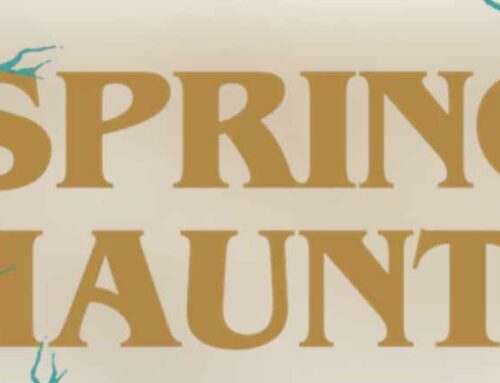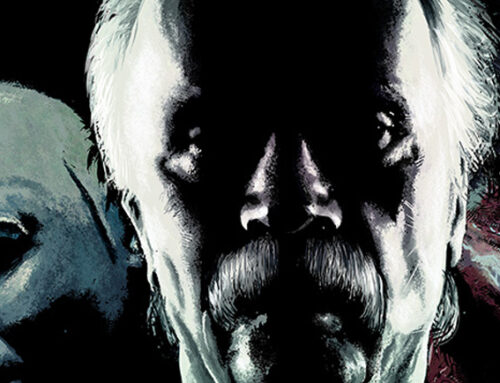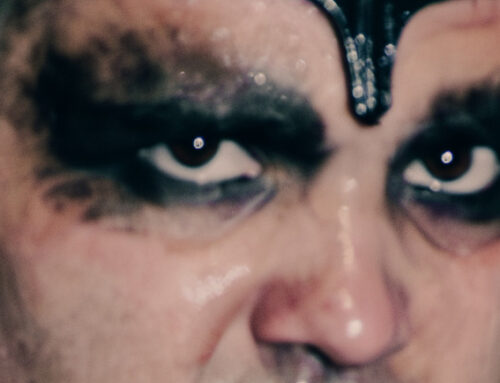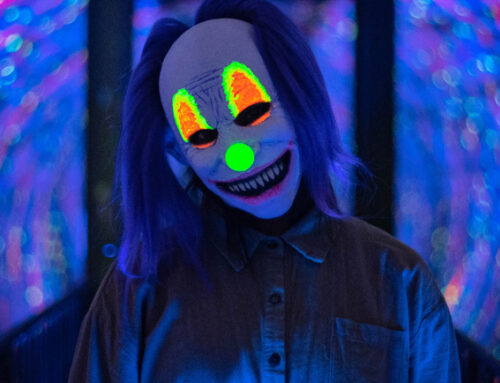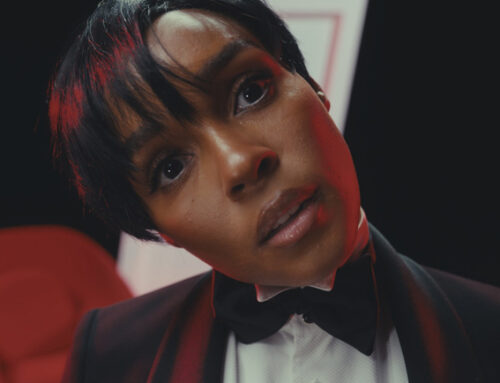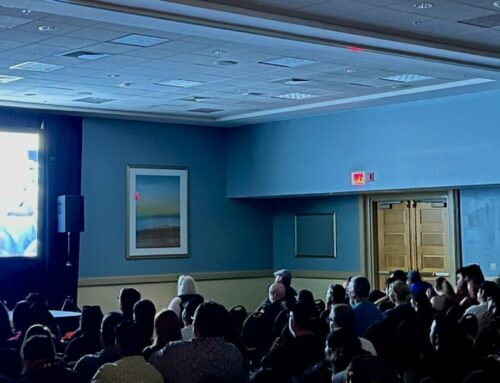On Friday March 29th 2019 at 7pm in Room 207 of the Anaheim Convention Center, HorrorBuzz made its WonderCon debut.
HorrorBuzz.com has been working hard to bring horror news and reviews to you since it’s inception four years ago. This past year, in particular, HorrorBuzz has been moving and shaking, enjoying many amazing events; attending Sundance for the first time, being invited to many new functions and press releases that have enabled HorrorBuzz to cover exciting new releases, and now HorrorBuzz has produced and hosted its first panel at this year’s WonderCon in Anaheim — an event spotlighting creators of comics, movies, TV, and animation that offers opportunities for direct interaction with fans.
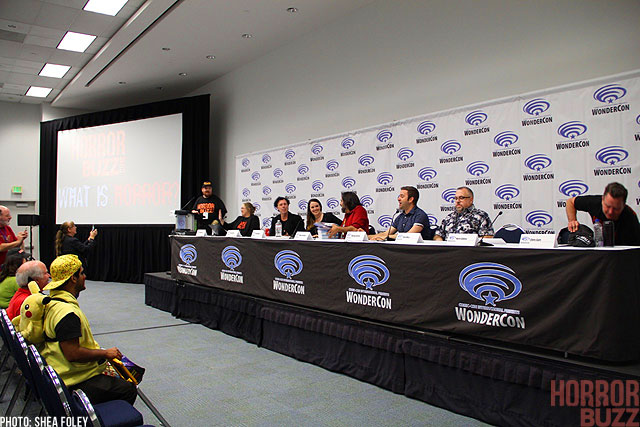
At the 2019 Wondercon, held this year at the Anaheim convention center, HorrorBuzz met with its fans and other horror enthusiasts to discuss this year’s panel theme, “What is horror?”. This year’s panel kicked things off by naming their favorite horror movies of all time, for insight into their horrific psyches. Panel participants included some of our closest friends: Film Threat founder Chris Gore (John Carpenter’s The Thing), Creative Director of Midsummer Scream Rick West (John Carpenter’s Halloween and Jaws), Horrible Imaginings Film Festival founder/director Miguel Rodriguez (Gojira), who kindly gave away copies of the booklet “My Favorite Horror Movie” to some lucky and trivia-tested attendees, screenwriter/filmmaker Michael Varrati (“anything spooky”), actress/producer Sarah Nicklin (The Exorcist), filmmaker/editor-in-chief at HalloweenMovies.com Sean Decker (Halloween), and, of course, HorrorBuzz.com founder/editor/fearless leader Norm Gidney (John Carpenter’s Halloween). The panel was hosted by Eric Ryan (The Exorcist) and Amantha Ryan (The Texas Chainsaw Massacre), intrepid hosts of HorrorBuzz’s Horror Movie Night screenings, this year occurring every 3rd Friday at the Frida Cinema in Santa Ana, CA. So in short, this year’s panel was stacked with horror experts to explore what is horror, and how a film is defined (or not defined) as such.
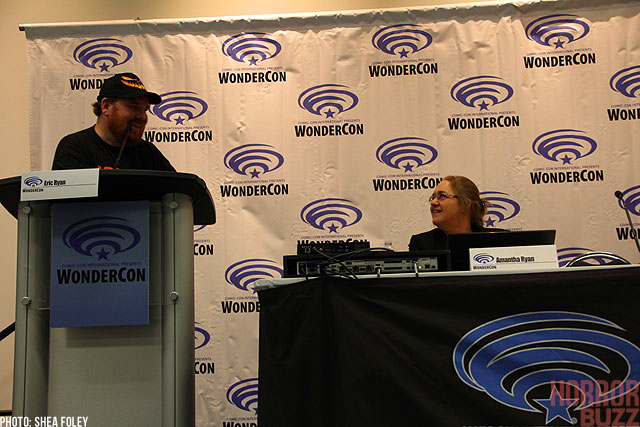
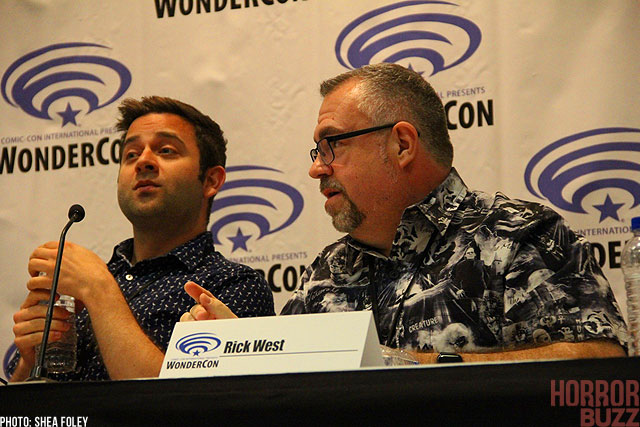
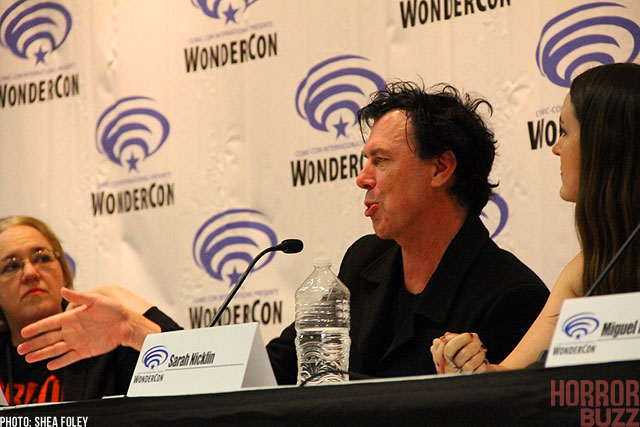
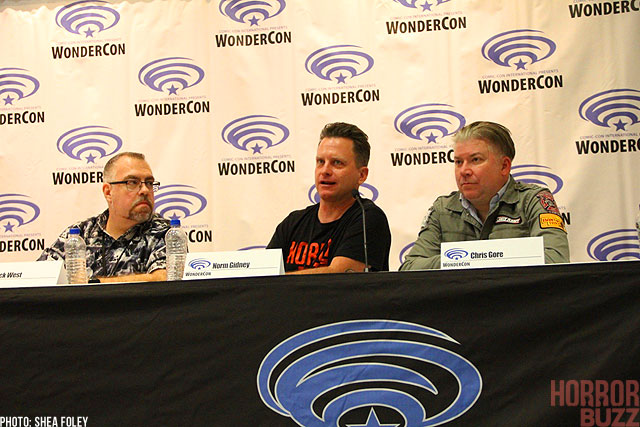
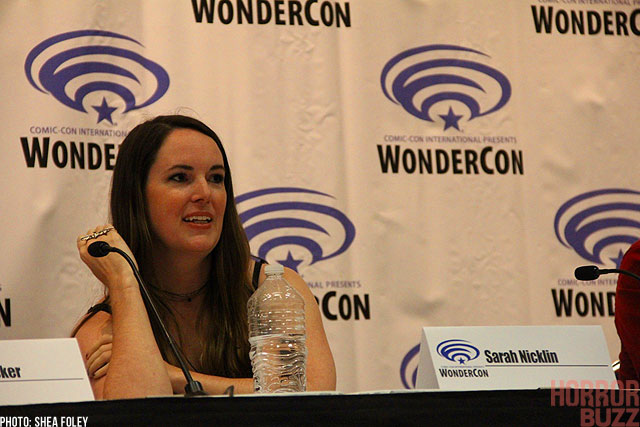
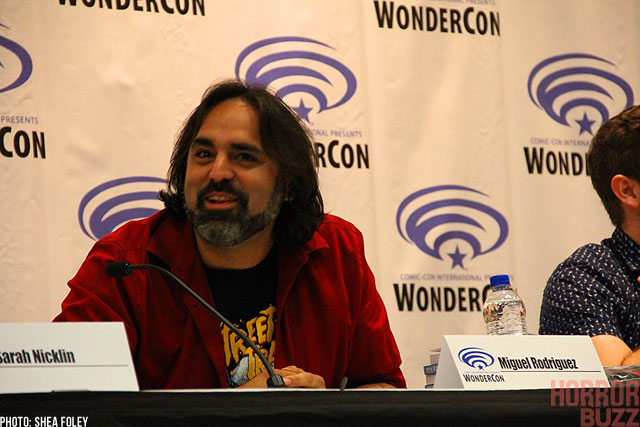
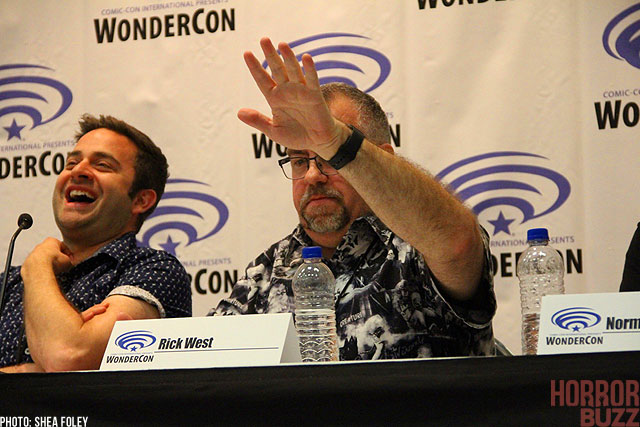
Posing the movies Schindler’s List and Requiem For A Dream for discussion, which are movies defined as drama but which undoubtedly contain beats of horrific moments, the panelists discussed whether these movies should be labeled as horror and if yes, why. For some panelists, a movie is a horror movie to them when they are scared by the movie, but interestingly, others posed that a movie is horror when the characters within the movie are experiencing something horrific. Personally, when I saw Get Out (2017), for example, I did not get the horror label that this movie was being reviewed as; I thought of it more as a psychological thriller because I myself was never jump scared, or anything to that effect. However, I see the point of this horror label for Get Out, having it posed that way. Conversely, I did get a sense of horror from Peele’s latest film, Us (2019), which was also briefly discussed at this panel (sans spoilers). How is Jaws (1975) a horror movie, but Jurassic Park (1993) is not? Great question! They both are monster movies, but the panel arrived at the conclusion that dinosaurs are fantasy, but there could be a giant shark right off the coast, making Jaws/”Bruce” a more impending threat. What was interesting to see at the HorrorBuzz panel is the audience interjecting with their opinions as well, opening up the discussion to how audiences perceive and receive these films that the industry markets to them as horror.
Horror is one of the film genres often overlooked and treated without seriousness academically. Anyone who has seen performances such Marcia Gay Harden in one of my favorite movie performances ever as the excruciatingly and fanatically grating Mrs. Carmody in the Mist (2007), or Essie Davis just a few years ago in the Babadook who scared the bejeezus out of me in devastatingly real performance, will lament this fact. Did Psycho (1960) even win anything? It is a travesty when you look back over the history of cinema and can note so many obvious snubs, and the panel addressed this issue, attempting to define horror as an industry standard and how that also affects the marketing of a movie, and subsequently, its reception. Sarah Nicklin pointed out that horror is often responsible for pushing the boundaries since movies like Night of the Living Dead (1968) had a male black lead and people were only comfortable with seeing that within a horror film since horror is not mainstream. Horror taps into the zeitgeist and captures social sentiments and news of the times, and does so in a format that is not conventional at the risk of not being accepted and flying under the radar cinematically. Michael Rodriguez offered that it’s actually good that horror is overlooked in a way though, saying “it frees horror” from having to fit into a mold, so to speak. That unboundedness allows the genre to subvert our everyday realities and explore what our true fears and anxieties are, like horror bravely and creatively does.
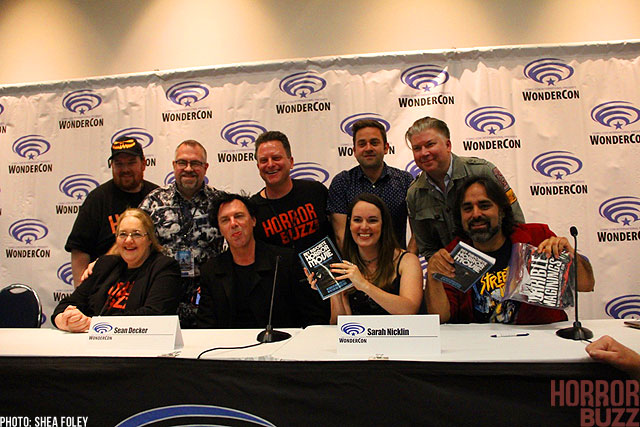
It was an open and comfortable conference amongst the panel participants, and even between them and the audience, as they and other horror aficionados together discussed what is horror and the movies that belong to that genre. Ultimately, horror is a combination of atmosphere and audience — yes the movie’s content perhaps carries the brunt, but also the audience brings their own “baggage” and personal experiences when watching a film, and there is a personal subjectivity that ultimately defines a film as horror. Sean Decker said of horror “I think for this group that’s in here, [horror] is fun, every film is escapism, but when you’re going to get your popcorn and candy and sit down and watch a horror film, it’s going to be fun…”, a sentiment that truly every horror fan shares of this overlooked but enthralling genre of film.

